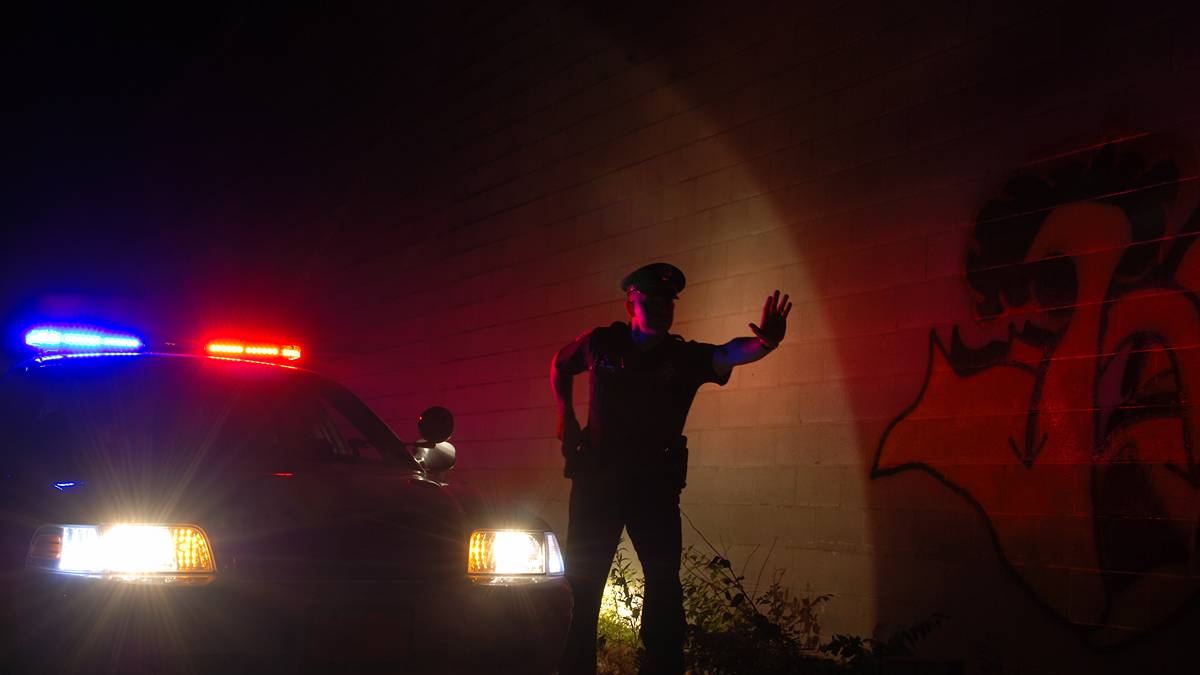Health Check: Inoviq cops ASX ‘speeding ticket’ query over cancer study headline claims

Pic via Getty
- The bourse’s ‘please explain’ to the cancer drug developer has elicited a lengthy response
- Last week’s tearaway performer, Amplia will launch a second pancreatic cancer trial
- The private Myro to launch neuroblastoma trial
As any wizened sub editor will impart to an impressionable cub reporter – or what’s left of either – a headline needs to be short and punchy or else readers will go no further.
In adopting a similar approach, cancer drug developer Inoviq (ASX:IIQ) has attracted the gaze of the ASX compliance cops.
The bourse took issue with last Wednesday’s spiky disclosure headlined: ‘New treatment kills 88% of breast and lung cancer cells’.
Investors certainly read on, with the shares surging from 38.75 cents to a high of 47 cents (21%).
The ASX asked the company whether the announcement conveyed a “fair and balanced” impression of the contents, “given the early stage of the research”.
The bourse asked how Inoviq justified the use of the term “treatment”, given the disclosure lacked the “usual detail” to justify the claims.
In response, Inoviq furnished the compliance cops with a response that ran to nine pages, including 12 tables and 27 references.
Inoviq said the release made it clear the claims were based on in vitro studies, using cancer cell lines in a laboratory.
“Therefore, the header of the announcement was both fair and balanced in the context used.”
‘Best practice’
The company said the in vitro work is recognised as standard best practice.
This work is “often mandated by regulatory authorities and scientific guidelines for generating credible, reliable and interpretable results in both laboratory and clinical research settings.”
Inoviq also said the potential advantages of its CAR-exosomes over autologous CAR-T therapies in solid tumours were “generally well known and accepted in the scientific literature based on previous researchers’ in vitro and in vivo studies.”
CAR-Ts are T-cells that have been tricked up to improve their cancer-busting abilities.
CAR-T therapies to date have used patients’ own cells. Inoviq strives for an ‘off the shelf’ treatment availing of donor material.
Inoviq noted its headline was limited by the ASX’s proforma requiring a 60-word limit.
As any grizzled sub will tell you, the headline needs to match the allocated space (now, AI will do the job in a flash).
Not the first time
In late May, the ASX suspended Inoviq shares and lodged a query after a 25% share romp.
Inoviq pointed to the online publication of an abstract poster to American Society of Clinical Oncology (ASCO) conference.
This outlined an independent patient validation study of the company’s ovarian cancer test.
The “outstanding” blood test results showed more than 94% accuracy.
The issue centred on what data was ‘new new’, as opposed to being previously released data validated by Inoviq’s learned peers.
Amplia to launch second pancreatic cancer trial
Tearaway pancreatic cancer drug developer Amplia (ASX:ATX) has won US ethics clearance to launch a second phase II trial, combining its candidate with standard chemotherapy.
Amplia shares last week surged as much as 400% after the company announced separately two ‘complete responses’ in a local trial.
A complete response is defined as the complete disappearance of a tumour lesion, maintained for more than two months.
That sounds awfully close to a cure but – corporate cops note – the company did not use the ‘c’ word.
The trial combined Amplia’s protein inhibitor narmafotinib (AMP-945) with the chemotherapies gemcitabine and Abraxane (nab-paclitaxel).
The proposed second trial will combine AMP-945 with Folfirinox.
Folfirinox is a cocktail of four chemo agents, more commony used in the US for advanced pancreatic cancers.
Having won central US Institutional Review Board (IRB) ethics assent, Amplia is selecting up to six US sites and two Australian venues.
The company expects to recruit 60 to 70 patients, which has a single arm (no placebo group).
The study is also open label (the researchers and patients know what treatment is being administered).
Take it as Red, Myrio is tackling neuroblastoma
Myrio Therapeutics is not listed – or not yet anyway – but keep an eye on this immunotherapy play because of its sole focus on neuroblastoma.
Neuroblastoma is a rare but aggressive childhood cancer.
Myrio recently won FDA approval to carry out a phase I road test of its CAR-T therapy. This is inelegantly named PHOX2B PC-CAR T and is based on Myrio’s tech dubbed Red.
Developed with the Children’s Hospital of Philadelphia, the proposed therapy targets a specific protein.
You guessed it, that’s PHOX2B – as expressed in neuroblastoma cells.
Red can also treat a much broader range of patients, via a mechanism best described by Google rather than us.
Myrio plans to enrol the first patient in mid-2025.
The most common tumour of the sympathetic nervous system, neuroblastomas account for 15% of paediatric cancer-related deaths. So, it’s rare, but not so rare.
Current treatment options result in low response rates and toxicity issues.
Clarity abandons program
There’s a dearth of neuroblastoma work in the ASX-listed sphere.
In April Clarity Pharmaceuticals (ASX:CU6) abandoned its program called CL04, which was in phase I/II trial stage across five US sites.
The study road-tested Clarity’s copper isotope-based agent, 64Cu/67Cu Sartate.
While the safety profile was OK, Clarity decided to focus its Sartate program on neuroendocrine tumours, a “a faster and larger market opportunity”.
Clarity has two Rare Paediatric Disease designations from the FDA, thus opening the prospect of winning valuable Priority Review Vouchers (PRVs).
What’s not to like?
The answer is the “risk to the continuation of the PRV program under the current US administration, the changes to the FDA and the very small patient population in neuroblastoma, despite the high unmet need.”
… but Arovella remains in the game
In early May Arovella Therapeutics (ASX:ALA) announced an exclusive option with the Baylor College of Medicine, to license two novel CAR-T receptors.
These receptors target solid tumours, including neuroblastoma (highly prevalent in children) and hepatocellular carcinoma (liver cancer).
Both CARs have been studied in human clinical trials, reducing the need for extensive preclinical testing.
Elsewhere, neuroblastoma progress has been snail-paced.
In 2020 the FDA approved Y-mAbs Therapeutics naxitamab (Danyelza).
This is a monoclonal antibody for relapsed or refractory high-risk neuroblastoma in the bone or bone marrow.
But in late 2022 the agency’s oncologic drug advisory committee voted 16 to nil to reject Y-mAbs’ omburtamab (Omblastys).
The European Medicines Agency swiftly followed suit.
Related Topics

UNLOCK INSIGHTS
Discover the untold stories of emerging ASX stocks.
Daily news and expert analysis, it's free to subscribe.
By proceeding, you confirm you understand that we handle personal information in accordance with our Privacy Policy.








